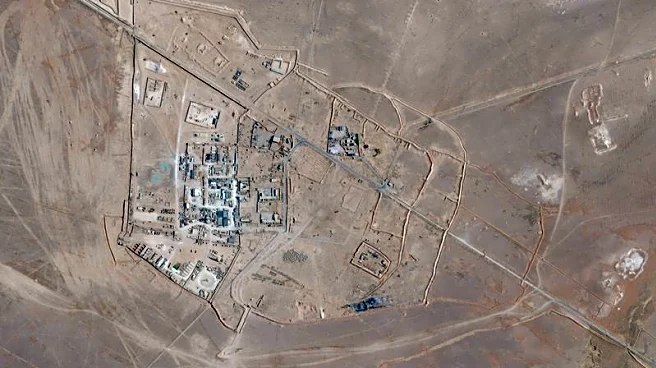What's Happening?
The Philadelphia Eagles are preparing for their upcoming game against the Kansas City Chiefs with a focus on managing extreme heat conditions. The game, a rematch of last year's Super Bowl, is scheduled to take place at Arrowhead Stadium, where temperatures are expected to reach the 90s, with humidity making it feel closer to 100 degrees. Eagles coach Nick Sirianni has expressed significant concern about the heat, recalling a previous game against the Tampa Bay Buccaneers where high temperatures negatively impacted the team's performance. To combat the heat, the Eagles plan to use sideline screens to provide shade for players, a strategy they have not employed in regular season games before. Additionally, the team has adjusted their practice schedule, opting for a lighter session to ensure players are well-rested and better prepared for the challenging conditions.
Why It's Important?
The Eagles' proactive measures highlight the increasing importance of environmental factors in sports, particularly as climate conditions become more extreme. The decision to implement heat management strategies underscores the potential impact of weather on player performance and game outcomes. This approach could set a precedent for other teams facing similar conditions, emphasizing the need for adaptive strategies in sports management. The game itself is significant, not only as a Super Bowl rematch but also as a test of the Eagles' ability to perform under challenging conditions. Success in this game could bolster the team's confidence and standing in the league, while failure could prompt further scrutiny of their preparation and adaptability.
What's Next?
Following the game, the effectiveness of the Eagles' heat management strategies will likely be evaluated, potentially influencing future practices and game preparations. Other NFL teams may observe and adopt similar measures if the Eagles' approach proves successful. Additionally, the outcome of the game could impact the teams' standings and momentum in the current season, with both teams eager to assert dominance early on. The broader implications of climate on sports scheduling and player safety may also gain attention, prompting discussions on how leagues can better prepare for and mitigate the effects of extreme weather.










